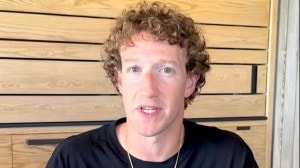At a time when the government is finalising the framework for grievance appellate committees (GACs) to look into complaints by users of social media platforms, experts believe that such panels can function in an objective manner only if they include genuinely independent appointees from different fields and not be packed by only government representatives.
Currently, the government is working on the design of these committees and would soon notify its structure and powers. As per the newly amended IT Rules, the GAC will consist of a chairperson and two whole time members appointed by the government, of which one shall be a member ex-officio and two shall be independent members.
After the tech companies failed to come up with a self-regulating mechanism, the government in October had tweaked the IT Rules for setting up GACs, which will look into the complaints of users of social media companies like Twitter, Facebook, and other such platforms. These committees will adjudicate complaints by users relating to blocking of content or accounts by the grievance redressal officers of the social media firms concerned.
“GACs may prove useful as a faster way of taking down misinformation and illegal content. But their implementation does not appear to have been fully thought through. There is a lack of full clarity on the eligibility criteria for its members and the manner of its operations. It is important that the GACs operate as politically independent bodies, following the principals of natural justice to ensure that the rights of content creators and social media platforms are not adversely impacted,” said Anupam Shukla, partner at Pioneer Legal, a Mumbai-based law firm.
Some of the concerns raised by the experts include the presence of government officials in the GAC working group, possibility of censoring of speech and freedom of speech threat, compliance over-burden on intermediaries, absence of rules regarding proceedings of GACs, etc.
“Rules are silent on whether the stance of social media companies will be heard or not. For rationality of decisions both sides should be given equal opportunity to be heard,” a representative of a law firm said.
According to sources, the government is planning to create three committees that will handle users’ grievances against almost all issues including personal data protection, content moderation, and de-platforming. The social media companies, which frequently run into trouble with the government due to differences in perception over content moderation policies, could see further friction in their interactions once the GAC framework is put in place.
Possibility of penal provisions going forward, warning of losing access to ‘safe harbour’ status on not complying with the IT rules, cut-down in timing to address complaints to 24 hours, etc, would not only affect the quality of decision making but also affect the ease of doing business, experts said. Currently under Section 79 of IT Act 2000, intermediaries are protected from any legal prosecution related to content on their platforms. If they lose the safe harbour status, they will lose that legal immunity for the content posted on their platforms.
“The obligation to address any user generated complaint within 72 hours is not only difficult to comply with but will inevitably lead to incorrect decision making, and as a result, arbitrary censorship of speech,” Internet Freedom Foundation, a Delhi-based digital rights group, had said in its comments to the IT ministry in July.
“Despite the concerns around its (GACs) constitutionality, even if such a committee is constituted, the feasibility of it being able to deal with a large number of appeal requests and possibility of the executive-constituted committee delivering unbiased decisions is highly unlikely,” the group added.
While the government is looking to make the social media companies more accountable for the content posted on the platforms, these companies believe that there will also be an increase in burden of justifying the GAC about not taking actions on unnecessary grievances.
“We have lakhs of messages from citizens and ‘digital nagriks’ whose grievances were not responded to (by social media companies),” MoS for IT Rajeev Chandrasekhar had said while detailing the IT Rules amendments in October. “It is not the area (setting up for GAC) that the government is very keen to get into, we are doing this very reluctantly and we are doing this because we have an obligation and duty to the digital ‘nagriks’ that their grievances are addressed,” he said.
As per the notified rules, any person who is aggrieved by the decision of grievance officers of social media companies can appeal to GAC within 30 days.







